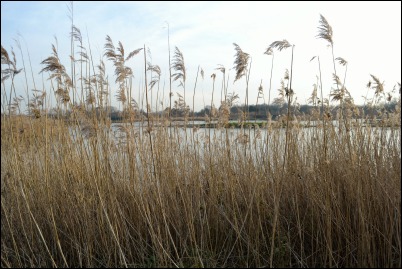What did wetlands ever do for us?


There's a scene in the Monty Python film Life of Brian where one character asks "what did the Romans ever do for us?" It then turns out that there's a long list of improvements the Romans had made to everyone's lives, from sanitation to education.
Today is World Wetlands Day - and it seems an appropriate time to remind ourselves "what wetlands have done for us".
1) They help to reduce the effects of flooding
That might seem odd - after all, wetlands are full of water, aren't they? Well, wetlands in coastal areas, such as mangrove swamps or salt marshes help to slow the speed of extreme tidal surges. And in other areas they act like a sponge, soaking up excess moisture from the land. Wetlands store water and control its movement.
2) They filter water
Reedbeds, marshes and other types of wetlands remove contaminants and pollution, providing clean water for animals, plants and people. Listen to our wetland science demonstration which explains how this works: Wetland science podcast There's also a great game in London Wetland Centre's Discovery Centre which illustrates this perfectly!
3) They feed us
If you've ever eaten rice, you've been fed by a wetland. Wetlands also provide us with fish, shellfish, and many plants. Livestock graze wetlands too, providing us with, for example, "salt marsh lamb". There's a display in our Lodge building showing many other food products that come from wetlands.
4) They are good for our health
Walking around wetlands can be an incredibly calming experience. For example, London Wetland Centre is a very convenient spot for city dwellers to escape their busy lives in the capital. Hear Simon King describe how visiting the Centre is a great way to unwind
5) They provide people with marvellous places to watch wildlife
As much as 40% of the planet's species of plants and animals are found in wetlands. And to give a local example, London Wetland Centre has recorded over 200 species of birds, 7 species of bats, 8 amphibians and reptiles, around 450 plants and 20 dragonfly species.
World Wetlands Day has a different theme each year - and in 2012 the theme is tourism. Sustainable, well managed tourism can benefit wetlands - and people. In his World Wetlands Day 2012 message, the Executive Secretary of the Convention of Biodiversity of the UN Environment Programme mentions London Wetland Centre as a great example of how this can work - along with internationally important sites such as the Pantanal and the Okavango Delta.
Our own World Wetlands Day celebration runs throughout the weekend with wildlife talks and interactive wetland demonstrations. Find out more about our World Wetlands Weekend 4-5 February